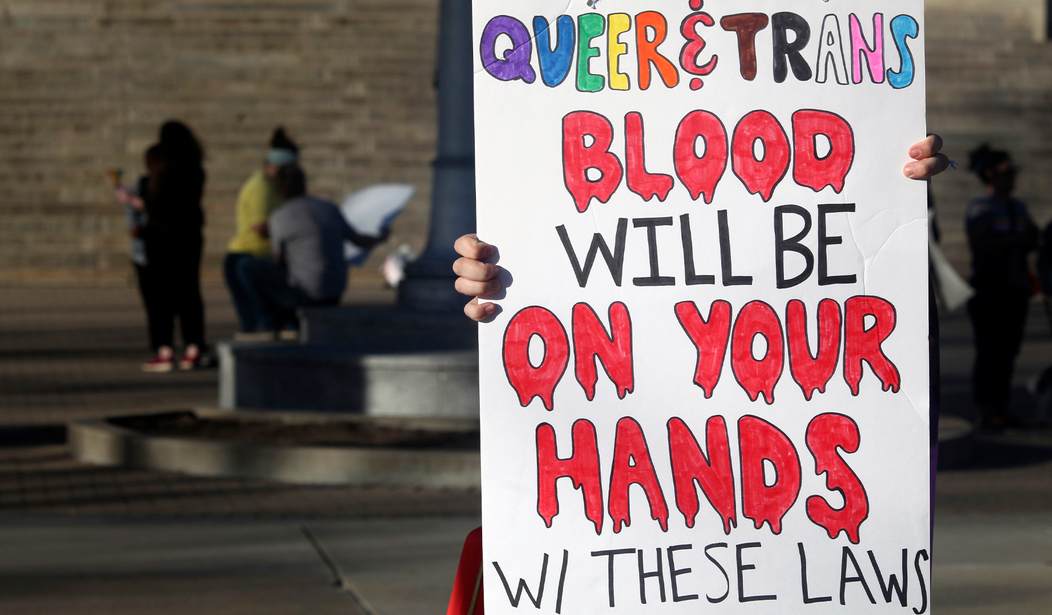A federal judge has blocked the enforcement of an HHS regulation that provided so-called "discrimination protections" in health care for persons identifying as transgender.
Judge Louis Guirola Jr. of the US District Court for the Southern District of Mississippi, a George W. Bush appointee, blocked the implementation of a rule extensively modifying Section 1557 of the "Affordable Care Act" to expand sex discrimination to include whatever whims a patient might have on a particular day. In his ruling, he said that HHS is “enjoined from enforcing, relying on, implementing, or otherwise acting pursuant to the May 2024 Rule’s provisions concerning gender identity,” The ruling applies to the entire country.
BACKGROUND: Federal Judge Slams Department of Education's Bizarre Interpretation of Title IX and Transgenderism
The Department of Health and Human Services (HHS) in May unveiled a final set of sweeping changes to Section 1557, the nondiscrimination provision of the Affordable Care Act. The changes, which had been slated to take effect Friday, expand the rule’s definition of sex discrimination to include discrimination based on sexual orientation and gender identity, angering officials in conservative states.
Fifteen GOP-led states — Tennessee, Mississippi, Alabama, Georgia, Indiana, Kansas, Kentucky, Louisiana, Nebraska, Ohio, Oklahoma, South Carolina, South Dakota, Virginia and West Virginia — sued the Biden administration in June, arguing in a federal lawsuit that the new rule supplants their health regulations “with a regime that sides with HHS’s commitment to gender ideology over medical reality.”
This is similar to a decision on Tuesday when another federal judge handed a resounding smackdown to the Department of Education's attempt to do the same thing with Title IX.
This regulation served as a stalking horse to require hospital staff to provide "gender affirming" treatments, such as hormone and surgical treatment, even when state law forbade such practices on pain of the hospital losing all federal funding.
Shortly after the regulation was announced, a flurry of lawsuits hit it.
Fifteen GOP-led states — Tennessee, Mississippi, Alabama, Georgia, Indiana, Kansas, Kentucky, Louisiana, Nebraska, Ohio, Oklahoma, South Carolina, South Dakota, Virginia and West Virginia — sued the Biden administration in June, arguing in a federal lawsuit that the new rule supplants their health regulations “with a regime that sides with HHS’s commitment to gender ideology over medical reality.”
States “could not have foreseen” that Section 1557 would be implemented in the way it has by the Biden administration, they argued. The latest interpretation of the law, the states said, “unlawfully coerces compliance” by threatening to strip billions of dollars in federal funding from state health programs that have come to rely on it.
Four different lawsuits were filed in Florida, Mississippi, and Texas federal courts.
The challenges all raise similar contentions. They accuse the HHS of violating the Administrative Procedure Act by defining discrimination in a way outside the scope of current law. They also say the HHS is violating the US Constitution, including free speech protections and the spending clause, given the agency’s ability to withhold funds for not complying with the rule.
But there’s “a bigger-picture set of arguments,” [Nicole Huberfeld, a health law professor at Boston University] said. Among those is the plaintiffs “taking opportunistic bites” at the major questions doctrine, a legal principle stating that agencies trying to decide issues of national economic or political importance need a clear green light from Congress first.
Another big picture effort: trying to rein in Congress’ spending power.
“The challengers’ theory is that state sovereign authority is being somehow burdened by the way that Congress is using its spending power,” Huberfeld said. That’s because federal programs like Medicaid, the Children’s Health Insurance Program, and health insurance exchanges rely on states’ participation, so states must comply with the Section 1557 rule if they want the federal funding for those programs, Huberfeld added.
Making the decision even sweeter was Judge Guirola's use of the Loper Bright decision, gutting the "Chevron Deference" principle that HHS could've used as a defense (see BREAKING: Supreme Court Issues Monumental Ruling on Chevron Deference).
In ruling against the Biden administration, the judge also pointed to a major Supreme Court ruling last week that overturned the decades-old “Chevron Deference” precedent that required courts to give deference to federal agencies that create regulations based on an ambiguous law.
“Plaintiffs have demonstrated a substantial likelihood of success on the merits of their claim that HHS exceeded its statutory authority by applying the Bostock holding to Section 1557’s incorporation of Title IX in its May 2024 Rule,” Guirola wrote, going on to quote from the high court’s ruling last week. “’And to the extent that Congress and the Executive Branch may disagree with how the courts have performed [their] job in a particular case, they are of course always free to act by revising the statute.’”
One never knows how these district court decisions will play out, but with courts allowed to exercise more oversight of regulatory matters, there is a hope that this seething wall of stupid that is transgenderism will be stopped and rolled back.














Join the conversation as a VIP Member